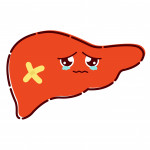Jackie Johnson learned he was living with hepatitis C virus (HCV) in 2010 after a doctor’s visit led to him getting an HCV test. He’d gone for a checkup after experiencing extreme fatigue daily, which he attributed as a side effect of his HIV medications. He had tested positive for HIV not long before.
Johnson received his HCV-positive test result while still living in Dallas, where he was born and raised. A doctor at the time told him that a liver screening showed no scarring and that the hep C treatment of the day was both heavy on side effects and suboptimal. As a result, Johnson decided it was best to put hep C on a back burner.
Doing so allowed Johnson to pursue his acting ambitions. He saved up money and eventually moved to New York City in 2014. He struggled for a while, working odd jobs to pay his bills. However, he did connect to care soon after he arrived. In 2015, he took advantage of the latest hep C treatments and was soon cured of HCV.
Johnson’s story illustrates the importance of pursuing your life goals, whether they be acting or getting cured of hep C. Click here to read more about Johnson’s journey to better health.
In addition to treating and curing your hep C, achieving and maintaining overall health and wellness is a life goal we all should consider. However, for people living with hep C who are also dealing with additional health concerns, managing general wellness and getting cured of HCV is that much more important.
Case in point: For those living with chronic kidney disease (CKD), getting cured of hep C is not only important but likely. For people with CKD, treating their HCV was once considered difficult on the older hep C medications. A new study shows that newer direct-acting antiviral therapies are effective for those with CKD.
In fact, researchers have become so confident in curing hep C with the latest meds that they are studying whether HCV-negative people could receive kidney transplants from HCV-positive donors. A small study found that doing so and then treating the recipients for hep C was safe and effective. Click here for more.
The good news about hep C cures is spreading. Nonetheless, baby boomers have been slow to get tested. The majority of people living with hep C in the United States were born between 1945 and 1965. Getting them tested for HCV is critical.
To that end, the Centers for Disease Control and Prevention now recommends a one-time test for baby boomers, regardless of hep C–related risk factors. The message is working. Click here for more.







Comments
Comments